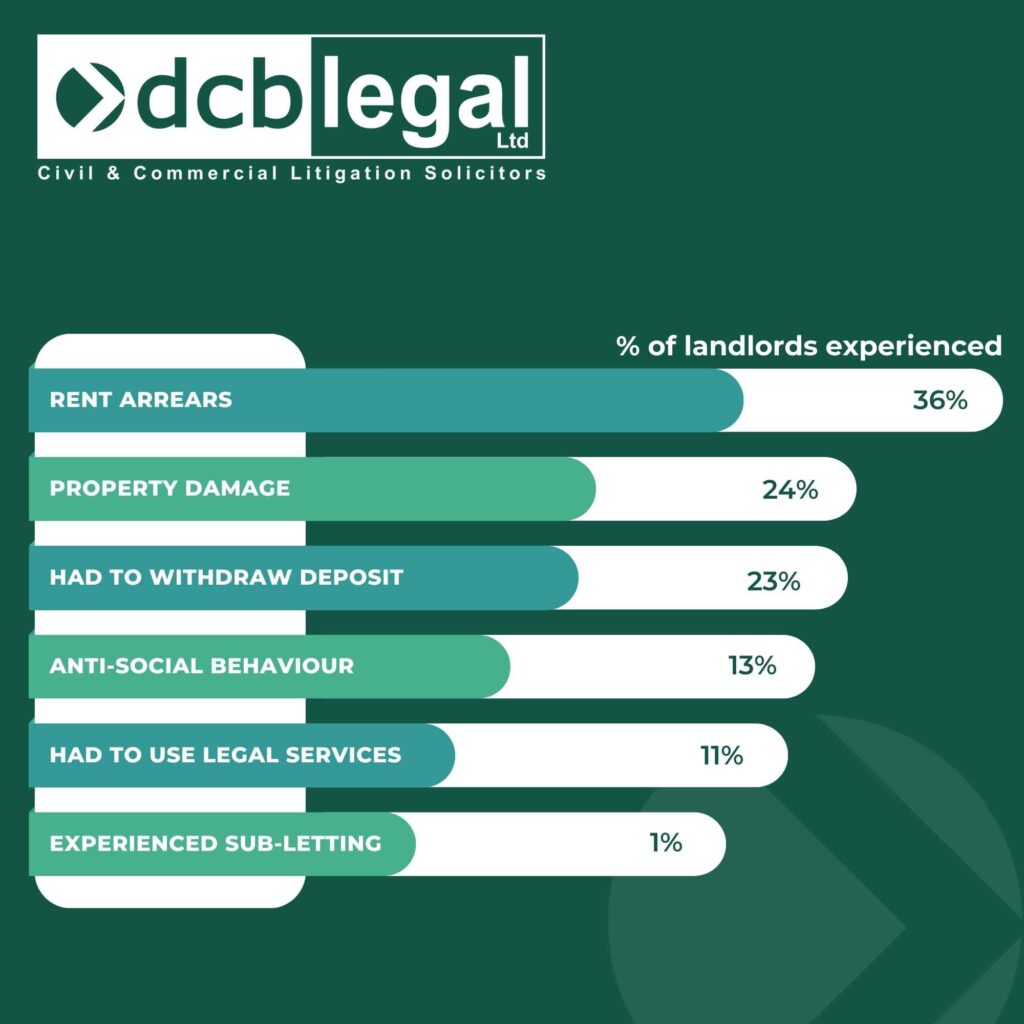
Effect of Cost of Living on Rent prices
While August has heralded good news for landlords with the first drop in the base rate since the rises first started in December 2021, the effects of the interest and inflation rates have been palpable.
According to figures from the ONS, private rents increased by 9.2% in the 12 months to March this year, driven mostly by the 70% increase in average buy-to-let mortgage rates (3.16% to 5.45%) over the last 5 years.

Rise in Rent Arrears
With landlords forced to increase rents, there has been a dramatic uptick in missed payments. Statistics acquired by Paragon Bank suggest that over one-third of landlords have cited rent arrears as a problem.
Other major problems landlords have experienced include property damage and tenants’ anti-social behaviour.
According to one survey, just over 1 in 20 tenants have missed rent payments in the last 12 months, causing a tangible negative impact on the respective landlords.
Increase in Possession Claims
The above has naturally led to an increase in possession claims of nearly 20% overall and an even greater increase in accelerated possession claims (32%) in Q3 2023 vs. Q3 2022. Of the just under 25,000 possession claims brought in July to September, 7,402 were by private landlords.
The volume of claims is now nearing pre-pandemic levels and will undoubtedly continue to rise. Accelerated Section 21 claims, which both the previous and incumbent governments have proposed abolishing, most recently through the Renter’s Rights Bill, can only be expected to increase their share of the total value of claims given the uncertainty of the proposed legislation.
The Court Process
More than half of landlords in the UK also work full time and many of whom will not be au fait with the complicated process of obtaining a possession order. Specifically, the more nuanced process of an accelerated Section 21 Claim which, while faster than the Section 8 court process, must be followed to the letter to result in a possession order.
Without using a law firm, many novice landlords will find huge delays in their case, including unnecessary hearings, missed steps, and potentially even dismissal of their claim.
Delays with Court Evictions
One such missed step in the process is obtaining leave to use High Court Enforcement. Often missed by litigants in person, and indeed law firms not specialised in Landlord claims, this will mean order may only be enforced by the County Court.
The most recent statistics published by the government show that timescales to obtain the possession order are, on average, 8 weeks. In contrast, repossessions carried out by the County Court Bailiffs are taking an average of 31 weeks!
Contact DCB Legal
If you have had any issues with tenants not paying rent, or need to repossess a property for any other reason, please contact DCB Legal today on 0203 434 0426 or visit our Landlord Services Page for more information.


